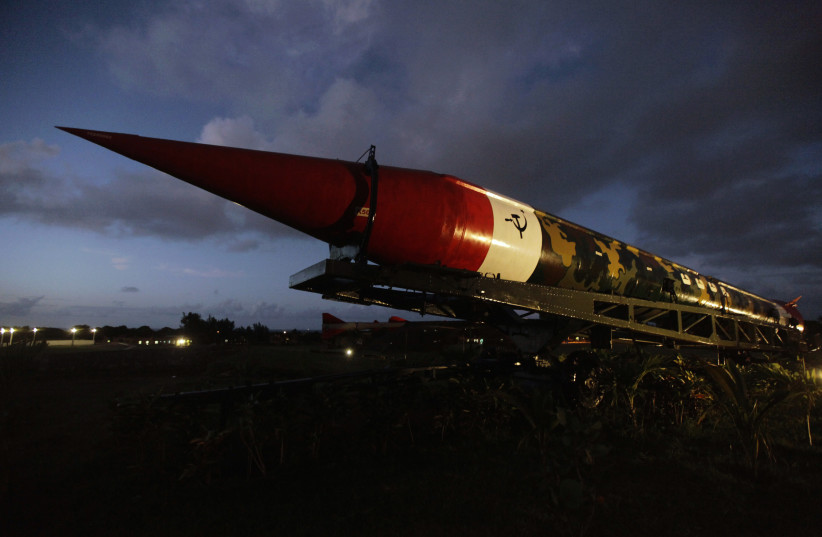Strong United States-Israel coordination is needed to prevent a nuclear Iran, Foreign Minister Eli Cohen told the senior American Republican Senator Lindsey Graham who arrived in Israel from a visit to Saudi Arabia.
"Cooperation between Israel and the United States is necessary to stop the Iranian nuclear program, which is a global threat,” Cohen said on Monday when the two men met in Jerusalem.
Israel will continue to work to remove the Iranian nuclear threat from Israel, the Middle East and the entire world, Cohen assured the South Carolina Senator. In an interview with Channel 14 the night before he explained how Israel was the only power in the Middle East that was striking Iranian targets, particularly in Syria.
Defense Minister Yoav Gallant has said that Iran is already waging a multi-front war against Israel, including through proxy groups such as Hamas and Hezbollah.
“The way to change Iranian behavior is through massive economic and political pressure, in every sector of Iranian interest.”
Foreign Minister Eli Cohen
“The way to change Iranian behavior is through massive economic and political pressure, in every sector of Iranian interest,” said Cohen, adding that this has to be coupled with a credible “military threat against it.”

What is next for the Abraham Accords?
The two men also discuss expanding the 2020 Abraham Accords under whose auspices four Arab countries agreed to normalize ties with Israel.
Both Graham and Cohen still have their eyes on a normalization deal with Saudi Arabia, even though Riyadh has restored diplomatic ties with Tehran and has strengthened its relationship with Beijing.
In an interview with ABC from Saudi Arabia on Sunday, Graham said that “things in Saudi Arabia are changing very quickly for the better. I see a chance to normalize the relationship between the United States, Saudi Arabia and Israel [in a way] that would be transformative for the region.”
“If we could normalize relationships with Saudi Arabia, and then with Israel [and] build upon the Abraham Accords, it would be the biggest change in my lifetime regarding Mideast security and America's security.”
